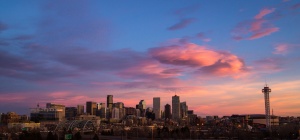 Retail space in metro Denver lagged behind its office and industrial counterparts in terms of growth in the last parts of 2014, but the first quarter of 2015 brought a drop in vacancy rate and a corresponding increase in lease rates.
Retail space in metro Denver lagged behind its office and industrial counterparts in terms of growth in the last parts of 2014, but the first quarter of 2015 brought a drop in vacancy rate and a corresponding increase in lease rates.
On average in metro Denver, retail vacancy rates dropped to 6.2 percent in the quarter, the lowest recorded figure since 2006, and the lease rate increased to $16.73 per square foot, triple-net, the highest rate recorded rate since 2009, according to the latest data from CBRE Group Inc.
Triple-net leases require the tenant to pay all operating costs such as taxes and utilities, as opposed to full-service leases, which require the building’s owner to pay these costs.
Improvements were led by Class A shopping centers, grocery stores and restaurants, said Jon Weisiger, senior vice president at CBRE. Continued demand in the housing market, particularly in the suburbs, also pushed the growth of retail in the first quarter, he said.
Market-wide, metro Denver’s retail segment experienced 234,355 square feet of positive absorption in the first quarter, a substantial improvement from 720 square feet of positive absorption in the fourth quarter of 2014.
Absorption rate refers to the amount of space purchased or leased in a given segment of the market.
Only two submarkets experienced negative absorption, with Aurora and west Denver giving back 39,127 square feet and 7,906 square feet, respectively.
The negative absorption in west Denver is fairly nominal, Weisiger said, and Aurora is heavy in Class C retail space and has recovered from the recession more slowly than some other parts of the metro area.
The remainder of 2015 should see continued increases in lease rates and decreasing vacancy, though the merger between Office Max and Office Depot could result in some big-box space being vacated, but it’s unclear how much space that might be.
Retail construction stayed strong in the first quarter, with 378,000 square feet of space developed, up from 75,000 square feet in the first quarter of 2014.
Investors also displayed more confidence in Denver retail, spending a total of $158.4 million on retail properties in the quarter, an increase of 54 percent from the same quarter last year.
Denver’s industrial market was also attractive for investors during the quarter, with 2.4 million square feet of industrial space trading hands, twice the 1.2 million square feet that sold in the first quarter of 2014. The 2015 number was given a substantial boost by Denver-based real estate investment trust DCT Industrial’s purchase of the Airport Distribution Center in Aurora, a 689,557-square-foot buy.
Purchasing activity was spurred in the quarter by record-low capitalization rates driven by continued low interest rates, said Todd Witty, first vice president at CBRE. High lease rates on industrial properties also helped drive purchaser demand.
The industrial market maintained the low vacancy rates that characterized the sector during 2014, with average vacancy in the metro area reaching 4.8 percent on the quarter. Lease rates on average reached $6.89 per square foot, triple-net, representing prices seen at historical market peaks, said Doug Viseur, first vice president at CBRE.
Tenants who last signed leases in 2010 when lease rates were depressed are now experiencing some sticker shock as they consider re-signing leases in 2015, he said, and often these companies had not budgeted for the rent increases, but they are well-capitalized enough to withstand the jump in rental rate, Witty said.
Rents are expected to continue on their upward trajectory, with potential double-digit increases across all types of industrial properties for the remainder of the year, in spite of the 2.7 million square feet of industrial space currently under construction in metro Denver. These elevated lease rates are expected to entice more developers to the industrial pipeline, according to CBRE’s report.
Lease rates hit a record high in the office market in the first quarter at $23.69 per square foot, for a full-service lease, an increase of 5.9 percent over the previous year. The vacancy rate metro-wide was 12.9 percent.
Concerns about the drops in oil prices and layoffs at oil and gas companies continue to plague conversations about the downtown Denver office market, which took a large hit in the oil bust of the 1980s. But the impact is not expected to be so great this time, said Tim Swan, executive vice president and managing director at CBRE.
Denver’s job market is much more diversified now, he said, and those companies that have vacated space are smaller, or were holding onto space they were expecting to grow into and have now changed those plans. About 200,000 square feet of sublease space came onto the market in the Central Business District in the first quarter, a “blip” in a market with a total of 26 million square feet, Swan said.
Swan points to recent announcements by companies like financial services provider Transamerica and international cable provider Liberty Global that they would move their offices downtown as a sign of the diversity of downtown Denver’s office market.
 Wal-Mart Stores Inc. — facing growing competition and pivoting to e-commerce sales — will close 269 stores worldwide, including two in Colorado.
Wal-Mart Stores Inc. — facing growing competition and pivoting to e-commerce sales — will close 269 stores worldwide, including two in Colorado.

 rica’s best place for business and careers, and Fort Collins is No. 10, Forbes magazine declares in its latest annual ranking.
rica’s best place for business and careers, and Fort Collins is No. 10, Forbes magazine declares in its latest annual ranking.



